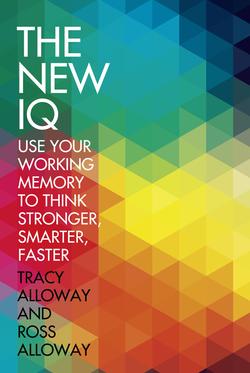Читать книгу The New IQ: Use Your Working Memory to Think Stronger, Smarter, Faster - Tracy Alloway - Страница 47
The Science of Happiness
Оглавление“Happiness depends on ourselves.” This insightful gem, attributed to the ancient Greek philosopher Aristotle, elegantly summarizes what philosophers have long known: happiness is the consequence of decisions that we make in our lives. We can choose to be happy even in the most desperate circumstances. When Viktor Frankl, a key figure in existential therapy, was imprisoned in a concentration camp during World War II, he found meaning and a reason to live by focusing on his love for his wife. Instead of dwelling on his imprisonment, he made a choice to be happy by focusing on future goals. In the past decade or so, psychologists and neurologists have been employing sophisticated experimental techniques in an effort to understand what philosophers have known for so long. Working memory is at the center of their investigations.
Sara Levens and Ian Gotlib from Stanford University are two of the psychologists examining the role that working memory plays in happiness. In a 2010 study, they recruited a group of adults with depression and another group of adults without any history of the mood disorder. Both groups had to perform a working memory task that required them to evaluate the emotional expressions—happy, sad, or neutral—of a series of faces viewed on a computer screen.
As each face appeared on the screen, the participants had to judge whether it had the same or a different emotional expression as a face they had seen previously. The groups performed this task twice. The first trial does not require working memory because the participants only had to determine if the facial expression matched the one they had seen immediately prior (1-back). In the 2-back task, which does engage working memory, they had to determine if the facial expression matched the one they had seen two faces earlier. Here are examples of these tasks:
1-Back Task 1
Sad Happy Sad Sad Neutral
2-Back Task
Sad Neutral Sad Happy Neutral Happy Happy
The words that are repeated in the 1-back or 2-back task are in bold.
Levens and Gotlib measured the speed and accuracy of the responses. There was no significant difference between the depressed and nondepressed groups on the 1-back task. The difference emerged when it came to remembering the emotional expressions on the 2-back task, the task that engages working memory. The depressed individuals were faster in matching sad faces, while the non-depressed adults were quicker in matching happy faces. The psychologists suggest that the way we use working memory to process emotions played a role in this difference. They conclude that depressed individuals were more likely to keep sad emotions in their working memory, while the non-depressed people keep happy emotions in their working memory. This suggests that your working memory Conductor can be a double-edged sword when it comes to happiness: you can use it to fixate on the bad, or the good. Paraphrasing Aristotle, it’s your choice. But as we will see, those with a stronger working memory tend to choose happiness.
To take her research a step further, Levens teamed up with Elizabeth Phelps of New York University to investigate what happens in the brain when people use working memory to process emotional information. They asked participants to perform working memory tasks in which they had to recognize positive and negative emotions. Participants were first shown a string of negative emotional words—like murder and terror—on a computer screen. They were then shown a single word (known as the target word) and asked to determine whether it was in the list of negative words they had just seen. The experimenters did the same with positive words. These tasks required the participants to use working memory to keep in mind the lists and then compare the target word with the lists. At the same time, the scientists observed the brain activity of the participants using functional magnetic resonance imaging (fMRI) scans. The scans revealed that blood rushed to the PFC, and the researchers showed that working memory plays a role in judging positive and negative emotions. But distinguishing between positive and negative thoughts isn’t the same as feeling a negative or positive emotion. So does having a strong working memory actually help make us feel happier?
